Baltimore detectives investigating the death of a US black man who died from injuries sustained in police custody have handed their investigation over to prosecutors, officials said today.
Baltimore Police Commissioner Anthony Batts told reporters that a team of investigators had carried out an urgent examination of events surrounding the 12 April arrest of Freddie Gray and his death a week later.
"I understand the frustration, I understand the sense of urgency, and so has the organization and that is why we have finished (the probe) a day ahead of time," Mr Batts said.
"The state's attorney is committed to seeing justice. And from this point on, we will take all directions from the state attorney, because it is now their case."
The development means it is now up to prosecutors to decide who - if anyone - will be charged in connection to Mr Gray's death.
Baltimore Deputy Police Commissioner Kevin Davis said the investigation into Gray's death had revealed some new findings, including that the police wagon he was travelling in had made an additional stop, though he did not elaborate on the significance of this.
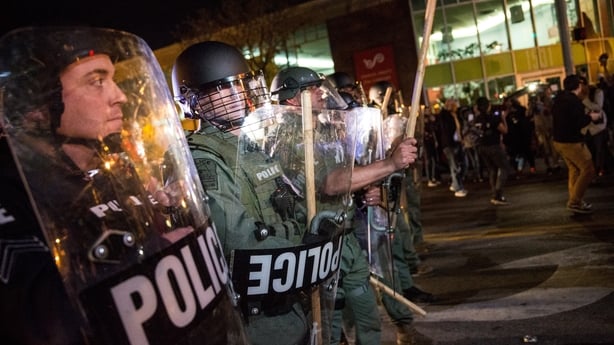
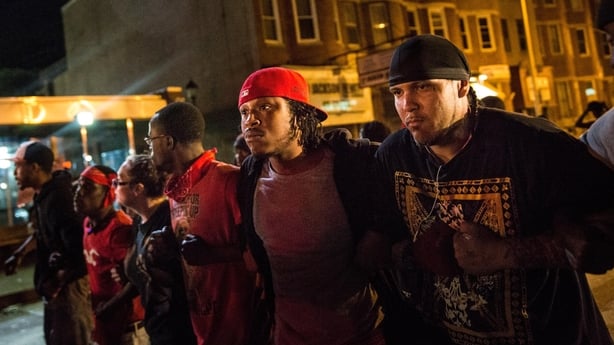
Mass protest against racial profiling across the East Coast
Mr Gray, 25, died with 80% of his spine severed at the neck, lawyers for his family say, portraying him as just the latest young African American to die at the hands of the police.
His death is the latest in a string of fatalities involving unarmed black men and police, across several US cities including Cleveland; Ferguson, Missouri and New York in recent weeks, provoking wide scale protest.
Demonstrators marched against police violence in cities from New York to Denver. A large demonstration in Baltimore ended peacefully following rioting on Monday over the death Mr Gray.
New York City police arrested more than 60 people as protesters roved in separate groups through Manhattan, blocking traffic in a few areas.
Smaller protests occurred in Boston, Houston, Ferguson, Washington DC, Seattle and a handful of demonstrators were arrested in Denver.
In Baltimore, 3,000 National Guard troops and police stood by to enforce a curfew as thousands of peaceful marchers converged on city hall.
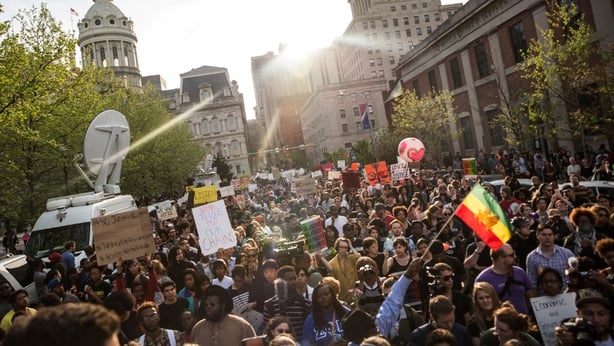
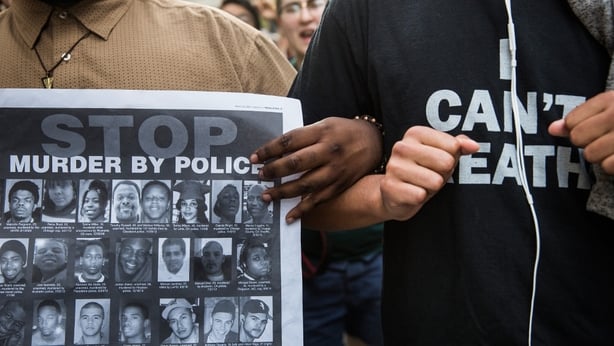
The march capped a day of calm in a city that two days earlier saw its worst rioting in decades.
"Can't stop, won't stop, put killer cops in cell blocks," chanted protesters in the biggest march in Baltimore since Mr Gray died on 19 April, a week after his arrest and injury.
Nineteen buildings and dozens of cars burned, stores were looted and 20 officers were hurt in Baltimore on Monday in violence hours after Mr Gray's funeral.
In New York City, police on scooters used batons to try to keep protesters on pavements and arrested people who moved into traffic.
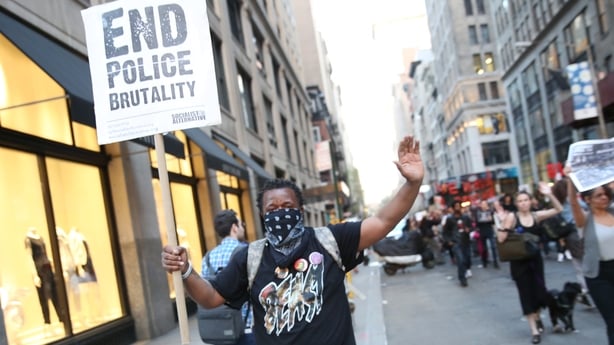
The demonstrations from Union Square to Times Square and elsewhere, were reminiscent of similar demonstrations in December after a grand jury decided against charges in the case of Eric Garner, an unarmed black man who died after a police officer put him in a chokehold.
With police and National Guard troops patrolling Baltimore's streets, schools reopened and business resumed.
Baltimore's Major League Baseball team, the Orioles, played the Chicago White Sox in an empty stadium, a sign of the tenuous security situation.
Police have arrested close to 270 people since Monday, 18 of them yesterday.
Police Commissioner Anthony Batts said more than 100 people had been released without being charged, because officials could not keep up with the paperwork, but he said charges would be brought later.

